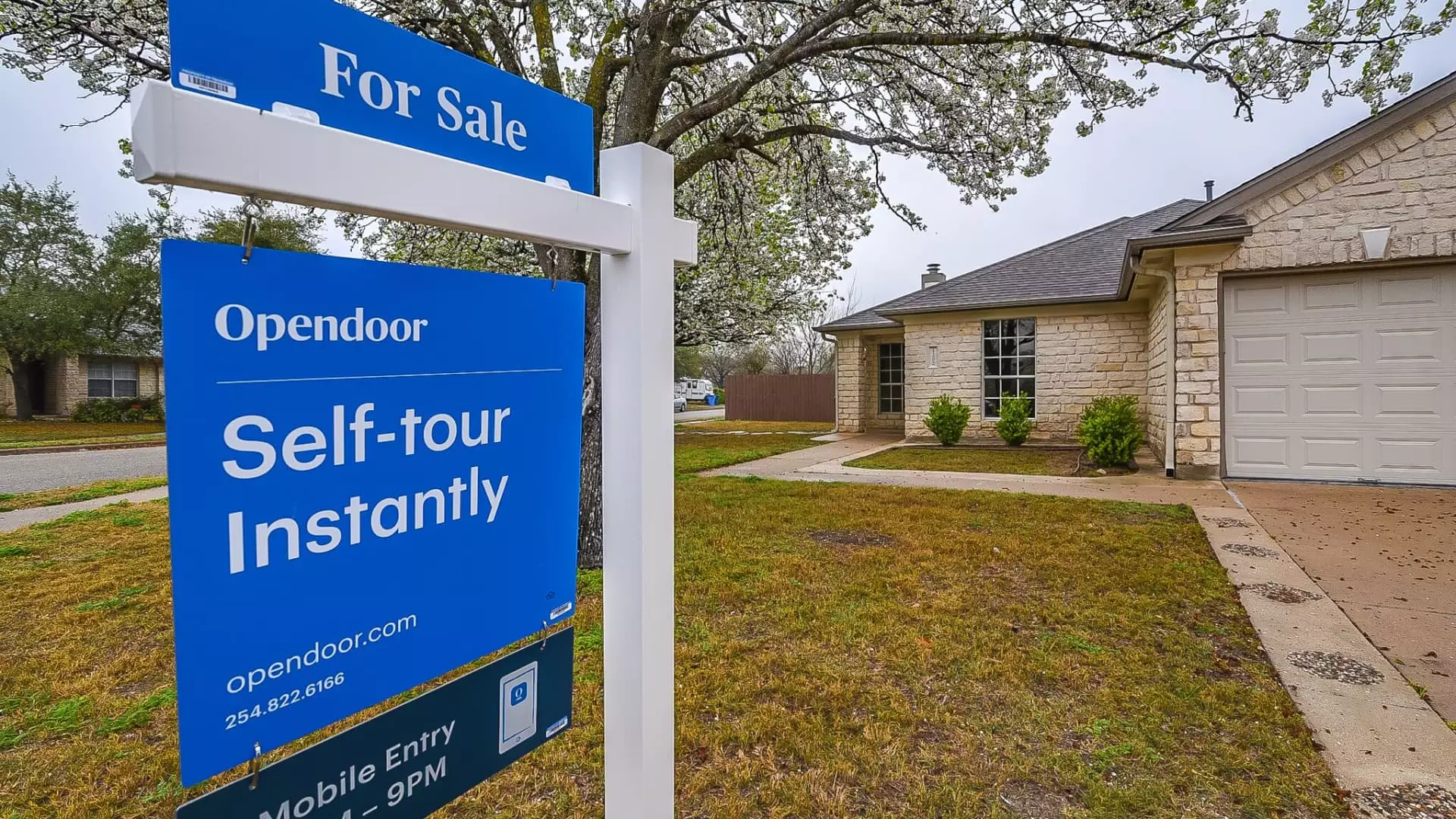In recent weeks, Opendoor’s stock has experienced an almost meteoric rise, soaring nearly five times its value since July. This sudden surge, driven by investor enthusiasm and hedge fund backing, appears to paint a picture of revival and resilience. However, beneath this shiny veneer lies a profound reality—Opendoor remains a company struggling to adapt in a battered housing market. The impressive rally is less a testament to genuine growth and more a reflection of opportunistic speculation. It distracts from the fact that the company’s core business continues to face significant headwinds, primarily stemming from macroeconomic shifts like rising interest rates and declining housing demand.
This exuberance is reminiscent of a bubble, inflated not by tangible improvements but by fleeting optimism and a handful of high-profile investors betting on a turnaround. While CEO Carrie Wheeler eagerly celebrates investor interest, her words cannot obscure the underlying malaise. The company’s financials reveal a stark narrative: declining revenues, mounting losses, and a shrinking pipeline of home acquisitions. The rally may be temporary, fueled by short-term traders and speculators hoping for a quick profit, but it does little to address the fundamental flaws afflicting Opendoor’s business model.
The Reality Check: Pandemic-Era Business Model Faces Obsolescence
Founded in 2014 and riding the wave of the Covid-19 pandemic, Opendoor capitalized on the boom of iBuying—an approach of using technology to quickly buy and sell homes for profit. During its early years, the model seemed promising, but the tide turned swiftly with rising interest rates that increased borrowing costs and sharply subdued demand for home transactions. As mortgage rates climbed in 2022, buyers retreated, and Opendoor’s revenue plummeted from a peak of $15.6 billion to just over $5 billion last year.
This is the inevitable consequence of a business heavily reliant on access to cheap capital and a buoyant housing market. When conditions shifted, the cracks in Opendoor’s strategy widened. The company’s revenue and market share declined sharply, and its attempts to pivot—such as shifting toward a less capital-intensive referral model—are still in flux. While CEO Wheeler claims this transition is “the most important strategic shift,” critics rightly question whether this new approach can generate sustainable profitability in a market that remains volatile and unpredictable.
The Myth of a Turnaround: Hope vs. Reality
Despite the recent excitement, the numbers paint a sobering picture. The second-quarter revenue, although marginally better than before, still reflects a sluggish growth rate of merely 4%. More tellingly, the company continues to operate at a loss, with a net loss narrowing from $92 million to just $29 million—an improvement, yes, but hardly a sign of imminent profitability.
The future looks even more challenging. Projections indicate a significant revenue decline in the upcoming quarter, alongside decreasing home acquisitions. The company’s plan to acquire fewer homes and cut marketing spend suggests an admission of how precarious its position is within the modern housing landscape. The persistent high mortgage rates and deteriorating market conditions continue to suppress demand, making Opendoor’s historically capital-intensive model increasingly untenable.
Investor Optimism: Short-lived Hope or Structural Shift?
The recent rally appears to be driven by more than just speculation; it’s also fueled by a handful of influential investors, notably hedge fund manager Eric Jackson, who envisions a rosy future where Opendoor’s stock could surge to $82. Such optimism—while appealing in theory—ignores the company’s deep-seated vulnerabilities. Jackson’s bet hinges on a potential return to growth through increased market share and operational efficiency, but these are not guaranteed outcomes given the current economic environment.
The company’s pivot to a referral-based model is promising, but it’s no cure-all. Such strategic shifts often take years to bear fruit and involve significant execution risks. Until there’s concrete evidence of a sustainable turnaround, the recent rally remains a fragile illusion. A market driven by hype and short-term trading can easily unravel, especially if macroeconomic conditions worsen or if competition intensifies.
The Underlying Message: Confidence Must Rest on Reality
Opendoor’s story underscores a crucial lesson about the danger of riding waves of speculation without substantial foundational support. While some investors see promise in the company’s future, the reality is that the housing market remains deeply unpredictable, and Opendoor’s historical reliance on easy credit and a booming market makes its current aspirations fragile.
At a broader level, this episode highlights the importance of skepticism and critical analysis in investment decisions. Stock surges based on hope, rather than proven performance, are inherently risky. While change and adaptation are vital, they must be backed by tangible progress. Otherwise, companies like Opendoor risk becoming victims of their own hype, with a fleeting rally masking a fundamentally weakened position. When markets are driven more by sentiment than substance, the only certainty is continued volatility and dashed expectations.

